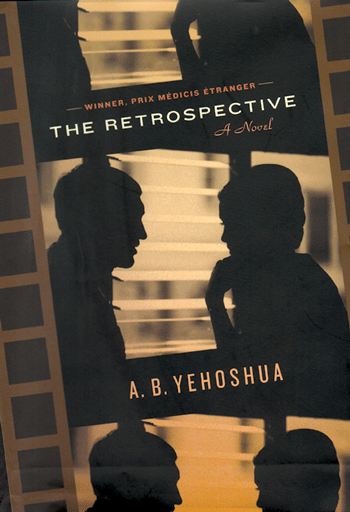The Retrospective, by A.B. Yehoshua, translated by Stuart Schoffman, Houghton Mifflin Harcourt, 336 pages, $26
Reviewed by NEAL GENDLER
Charming, melancholy and — by the end — rather absurd, A.B. Yehoshua’s The Retrospective repeatedly twists and turns back on itself as if to prove William Faulkner correct when he wrote, “The past is never dead; it’s not even past.”
The center of the tale is Yair Moses, an Israeli movie director invited for a three-day retrospective of his early films at an archive in northwest Spain’s pilgrimage city of Santiago de Compostela (the city where a high-speed train crashed last month). Those 1960s works were tiny-budget, avant-garde, symbol-laden productions by a tight foursome: teacher-turned-director Moses; scriptwriter Trigano, his most brilliant student; Toledano, his loyal cinematographer; and Ruth, a young beauty and star.
These products of Trigano’s agitated imagination succeeded artistically but failed commercially. Moses and the difficult Trigano had agreed not to dabble in each other’s work — Moses would follow Trigano’s script faithfully and Trigano would not interfere with Moses’ directing.
Trigano and Ruth were a couple. Toledano was smitten by Ruth, which later would be his undoing. All went well until Ruth refused to play a film’s last scene, evidently finding it degrading. Moses felt the depths of her emotion and didn’t insist, instead producing a different and weaker ending.

Disputatious Trigano stormed off, avoiding contact with Moses for three decades and speaking of his successful movies with contempt. Moses felt obligated to protect young Ruth, who had come from Morocco, her rabbi father reduced to custodial work. Moses’ protectiveness and Toledano’s unrequited love would trouble both their marriages.
Moses, now 70, cannot understand why a Spanish film archive would choose his earliest, crudest works — their details gone from his memory — and wonders if Trigano somehow set this up for Moses’ humiliation. He is frustrated further by the visually and tonally excellent dubbing into Spanish, which he cannot understand or check for accuracy.
Ruth, star of those and many subsequent Moses movies and his occasional lover, accompanies him. Aging yet attractive, she is ill from something undisclosed, refusing a follow-up blood test or, if having had it, refusing to tell Moses.
By what seems eerie coincidence, the painting over their passionless Spanish bed is reminiscent of the scene that caused the long-ago split. It depicts a Roman story: Near-death Cimon being nursed back to life by the breast of his daughter, Pero. Moses is fascinated but doesn’t mention it to Ruth, who seems not to notice.
The book’s Hebrew title is better: Hesed Sefaradi, the second word meaning both Spanish and Sephardi, as are three of the early foursome (Moses is a Jerusalemite). But the comfort or kindness suggested by the first word is scanty, perhaps related to the painting of nourishment, entitled “Caritas Romana,” or “Roman Charity.” Or perhaps the hesed has to do with the archive’s curator, a worldly Spanish priest who keeps telling Moses and attendees of the value of those first films.
The plot unfolds at a languid pace, but holds the reader’s attention through odd occurrences until eventually Moses confronts Trigano and fruitlessly tries to make peace for the sake of Ruth’s health. Perhaps Sephardic comfort is a play on Trigano’s sarcastic coldness.
Telling all this from Moses’ point of view, Yehoshua shows what it can feel like to be Moses’ age, with decreasing physical energy and weary reluctance to embark on yet another big project — one for which he lacks the nerve to tell Ruth she won’t be cast. Some reviewers, more steeped in Yehoshua’s work, speculate that The Retrospective has autobiographical overtones.
We eventually learn how Moses’ past catches up with him at this unsought retrospective with its modest prize. Watching his old films stirs him to revisit some of their locations, bringing unexpected and ironic twists.
The climax of the tale stretches credulity almost to the breaking point, but hey, it’s a novel — the author can exercise as much imagination as he dares.
***
Neal Gendler is a Minneapolis writer and editor.
(American Jewish World, 8.16.13)



















